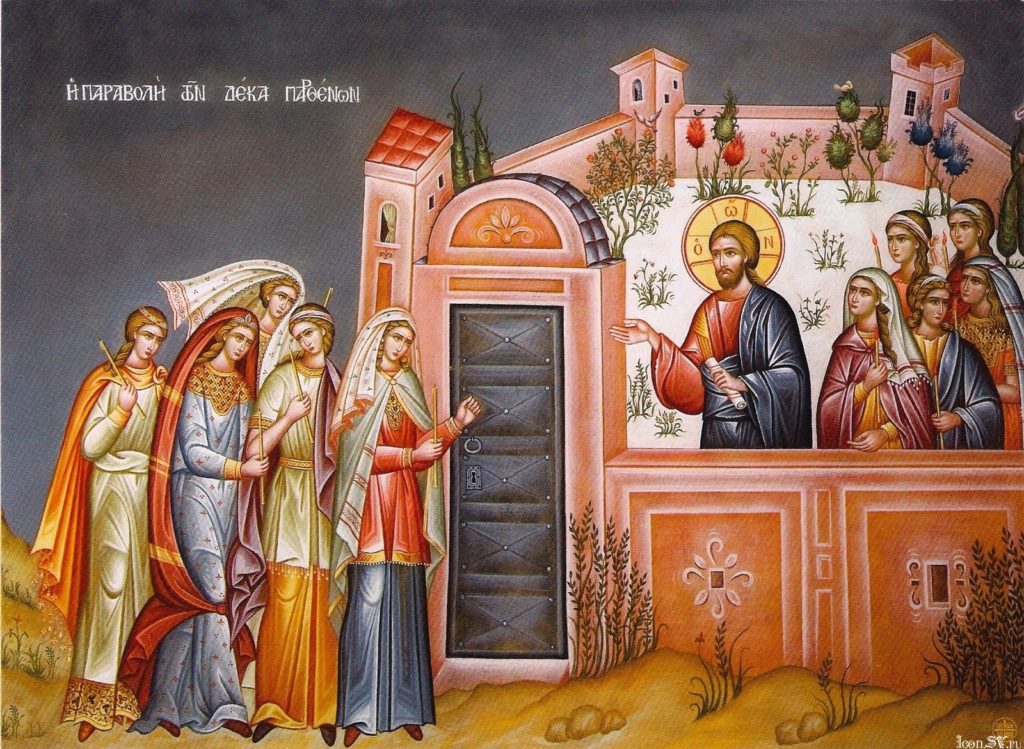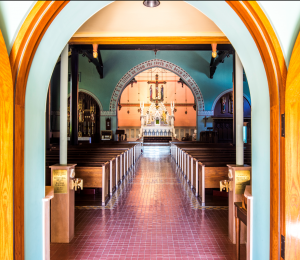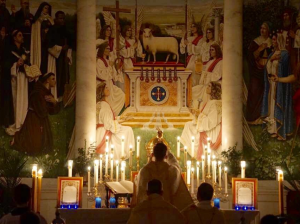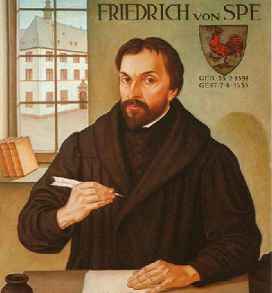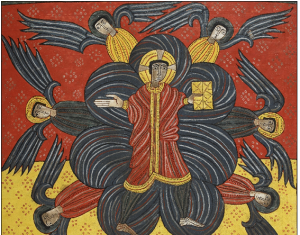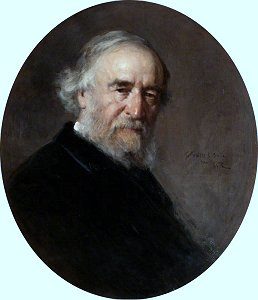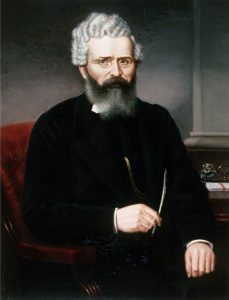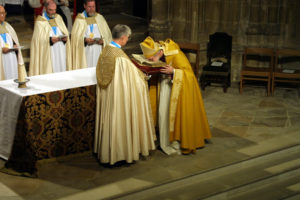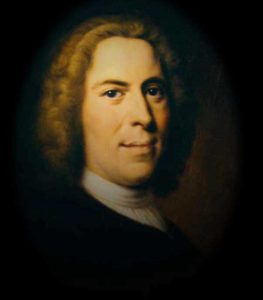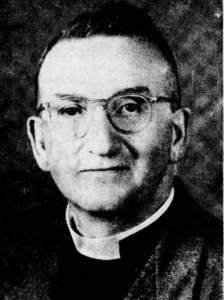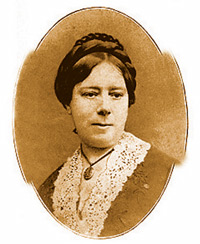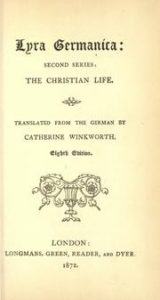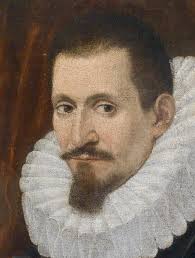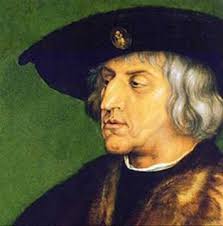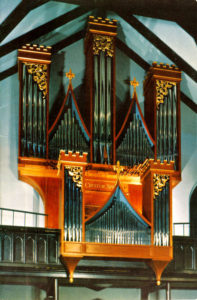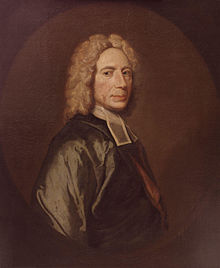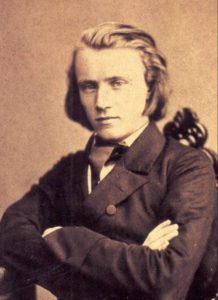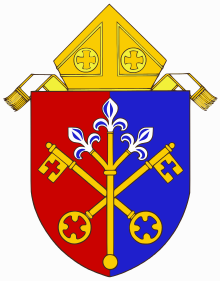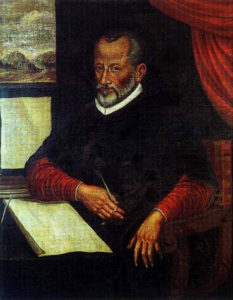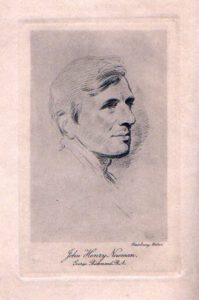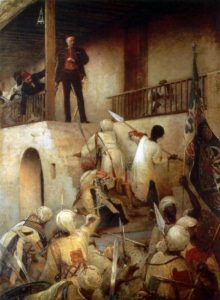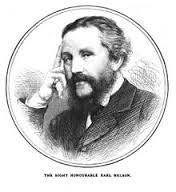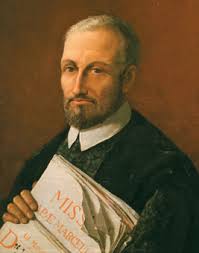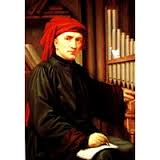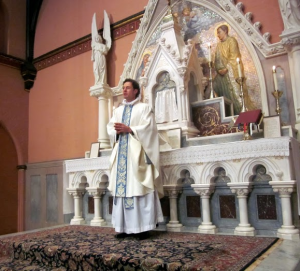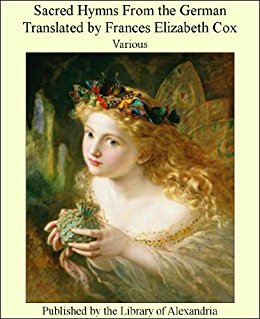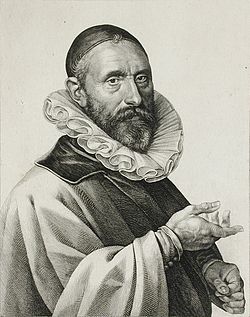Mount Calvary Church
Eutaw Street and Madison Avenue
Baltimore, Maryland
A Parish of the Personal Ordinariate of St. Peter
Rev. Albert Scharbach, Pastor
Music for December 3, 10 AM Sung Mass
Advent I
Prelude
Nun komm der Heiden Heiland, Johann Pachelbel
Common
Kyrie, Sanctus, Agnus Dei, Merbecke
Hymns
Wake, awake, for night is flying
O Saviour, rend the heavens
Lo, He comes with clouds descending
Anthems
Rorate coeli, William Byrd
Audivi vocem de coelo, Thomas Tallis
Postlude
__________________________________________________________________________
Hymns
Wake, awake for night is flying. In 1597 the Westphalian village where pastor Philipp Nicolai (1556-11608) lived experienced a terrible pestilence, which claimed some thirteen hundred lives in his parish alone. Nicolai turned from the constant tragedies and frequent funerals (at times he buried thirty people in one day) to meditate on “the noble, sublime doctrine of eternal life obtained through the blood of Christ.” As he said, “This I allowed to dwell in my heart day and night and searched the Scriptures as to what they revealed on this matter.” Nicolai also read Augustine’s City of God before he wrote this great Advent text and arranged its tune.
The original German text (“Wachet auf! ruft uns die Stimme”) and tune were published in Nicolai’s collection of devotional poetry, Frewden-Spiegel dess ewigen Lebens (1599), with a title that read “Of the Voice at Midnight and the Wise Virgins who meet their Heavenly Bridegroom.” Catherine Winkworth’s English translation was published in her Lyra Germanica (1858).
The parable of the ten virgins (Matt. 25:1-13) was the inspiration for stanzas 1 and 2, and John’s visions of the glory of Christ and the new Jerusalem (Rev. 19, 21, and 22) provide the basis for stanza 3.
Rorate mass
O Savior, rend the heavens wide is based on a verse in the Vulgate version of the Book of Isaiah: “Rorate coeli de super, et nubes pluant justum: aperiatur terra, et germinet Salvatorem”- “Drop down dew, ye heavens, from above, and let the clouds rain the Just One. Let the earth be opened and bud forth a Savior.” The first verse is related to another verse, Isaiah 64:1: “O that thou wouldst rend the heavens and come down, that the mountains might quake at thy presence.”
O Savior, rend the heavens wide;
Come down, come down with mighty stride;
Unlock the gates, the doors break down;
Unbar the way to heaven’s crown.O Father, light from heaven send;
As morning dew, O Son, descend.
Drop down, ye clouds, the life of spring:
To Jacob’s line rain down the King.O earth, in flow’ring bud be seen;
Clothe hill and dale in garb of green.
Bring forth, O earth, a blossom rare,
Our Savior, sprung from meadow fair.O Fount of hope, how long, how long?
When will You come with comfort strong?
O come, O come, Your throne forego;
Console us in our vale of woe.O Morning Star, O radiant Sun,
When will our hearts behold Your dawn?
O Sun, arise; without Your light
We grope in gloom and dark of night.Sin’s dreadful doom before us lies;
Grim death looms fierce before our eyes.
O come, lead us with mighty hand
From exile to our promised land.There shall we all our praises bring
And sing to You, our Savior King;
There shall we laud You and adore
Forever and forevermore.
Here are the Viennese Choirboys. Here is a German congregation. Here is why the German church is near death from terminal attempts at trendiness. I like the comment: “Chacun a son goût. Über Geschmack sollte man nicht streiten, weil jeder einen Anderen hat. Der gute Friedrich Spee v. Langenfeld ist sicherlich froh, an der Pest gestorben zu sein, als diese Verhundsung seiner Komposition zu hören.”
O Heiland, reiß die Himmel auf,
herab, herab vom Himmel lauf,
reiß ab vom Himmel Tor und Tür,
reiß ab, wo Schloss und Riegel für.O Gott, ein’ Tau vom Himmel gieß,
im Tau herab, o Heiland, fließ.
Ihr Wolken, brecht und regnet aus
den König über Jakobs Haus.O Erd, schlag aus, schlag aus, o Erd,
dass Berg und Tal grün alles werd.
O Erd, herfür dies Blümlein bring,
o Heiland, aus der Erden spring.Wo bleibst du, Trost der ganzen Welt,
darauf sie all ihr Hoffnung stellt?
O komm, ach komm vom höchsten Saal,
komm, tröst uns hier im Jammertal.O klare Sonn, du schöner Stern,
dich wollten wir anschauen gern;
o Sonn, geh auf, ohn deinen Schein
in Finsternis wir alle sein.Hier leiden wir die größte Not,
vor Augen steht der ewig Tod.
Ach komm, führ uns mit starker Hand
vom Elend zu dem Vaterland.
Added later and first appeared in David Gregor Corner’s collection in 1631:
Da wollen wir all danken dir,
unserm Erlöser, für und für;
da wollen wir all loben dich
zu aller Zeit und ewiglich.
Friedrich von Spee (1591-1635) was educated in the Jesuit gymnasium at Cologne, entered the order of the Jesuits there on Sept. 22, 1610, and was ordained priest about 1621. From 1613 to 1624 he was one of the tutors in the Jesuit college at Cologne, and was then sent to Paderborn to assist in the Counter Reformation. In 1627 he was summoned by the Bishop of Würzburg to act as confessor to persons accused of witchcraft, and, within two years, had to accompany to the stake some 200 persons, of all ranks and ages, in whose innocence he himself firmly believed (His Cautio criminalis, seu de processibus contra sagas, Rinteln, 1631, was the means of almost putting a stop to such cruelties). He was then sent to further the Counter Reformation at Peine near Hildesheim, but on April 29, 1629, he was nearly murdered by some persons from Hildesheim. In 1631 he became professor of Moral Theology at Cologne. The last years of his life were spent at Trier, where, after the city had been stormed by the Spanish troops on May 6, 1635, he contracted a fever from some of the hospital patients to whom he was ministering, and died there Aug. 7, 1635.
Spee was the first important writer of sacred poetry that had appeared in the German Roman Catholic Church since the Reformation. Among his contemporaries he was noteworthy for the beauty of his style, and his mastery of rhythm and metre. He seems to have come independently to much the same conclusions regarding measure and accent, and the reform of German prosody as did Opitz. His poems are characterised by a very keen love for the works of God in the natural world, and a delight in all the sights and sounds of the country, especially in spring and summer; and at the same time by a deep and fervent love to God, to Christ, and to his fellowmen. On the other hand his mannerisms are very pronounced; the pastoral imagery and dialogue which he is fond of using jar upon modern ears when used on such serious subjects as the Agony in Gethsemane. In the hymns to Jesus he is too subjective and sentimental, and works out the idea of Christ as the Bridegroom of the soul with unnecessary detail.
O HEILAND, REISS DIE HIMMEL AUF is a German chorale melody published anonymously in Rheinfelsisches Deutsches Catholisches Gesangbuch (1666 ed.). The tune is in Dorian mode and exhibits two main rhythmic patterns within its four lines.
__________________________________________
Visigothic manuscript
Lo, He comes with clouds descending was written by John Cennick (1718-1755) and extensively revised by Charles Wesley (1707-1788).
Here is the text in the 1940 Hymnal. Although its astringency has made it unpopular, it has been toned down from Wesley’s version.
Lo! he comes, with clouds descending,
Once for our salvation slain;
Thousand thousand saints attending
Swell the triumph of his train:
Alleluia! Alleluia!
Christ, the Lord, returns to reign.Ev’ry eye shall now behold him,
Robed in dreadful majesty;
Those who set at naught and sold him,
Pierced, and nailed him to the tree,
Deeply wailing, deeply wailing
Shall the true Messiah see.3 Those dear tokens of his passion
Still his dazzling body bears,
Cause of endless exultation
To his ransomed worshipers:
With what rapture, with what rapture,
Gaze we on those glorious scars!4 Yea, Amen! let all adore thee,
High on thine eternal throne:
Saviour, take the power and glory;
Claim the kingdoms for thine own:
Alleluia! Alleluia!
Thou shalt reign, and Thou alone!
Here is the hymn under John Rutter. Here is a simpler version.
Here is Cennick’s version (probably):
Lo! He cometh, countless Trumpets,
Blow before his bloody Sign!
’Midst ten Thousand Saints and Angels,
See the Crucified shine,
Allelujah! Welcome, welcome bleeding Lamb!Now his Merits by the Harpers,
Thro’ the eternal Deeps resounds!
resplendent shine his Nail Prints,
Ev’ry Eye shall see his Wounds!
They who pierc’d Him, shall at his appearing wail.Ev’ry Island, Sea, and Mountain,
Heav’n and Earth shall flee away!
All who hate him must ashamed,
Hear the Trump proclaim the Day:
Come to Judgment! Stand before the Son of Man!All who love him view his Glory
Shining in his bruised Face:
His dear Person on the Rainbow,
Now his Peoples Heads shall raise:
Happy Mourners! Now on Clouds he comes! He comes!Now Redemption long expected,
See, in solemn Pomp appear;
All his People, once despised,
Now shall meet him in the Air:
Allelujah! Now the promis’d Kingdom’s come!View him smiling, now determin’d,
Ev’ry Evil to destroy!
All the nations now shall sing him,
Songs of everlasting Joy!
O come quickly! Allelujah! Come Lord, come!
“He has cast down the mighty from their thrones and has exalted the lowly.” This sentiment of Mary’s, who gave voice to the poor and oppressed of the earth, was emphasized in Wesley’s version, which is the subject of this analysis:
Looking forward to the coming of Christ at the end of this age ought to remind us how desperately we need a savior—and how immense and earth-shattering is the good news that God is just and merciful.
The present text of the hymn has undergone a few redactions since first being penned by John Cennick, a land surveyor turned preacher and Moravian evangelist. Cennick was an acquaintance of the Wesley brothers and this quite probably accounts for Charles Wesley’s knowledge of the hymn. The most common version of the text is Wesley’s and it is the version followed below. However, the comparison of Cennick’s version with Wesley’s is interesting as it brings to light Wesley’s mastery of English and Scripture as he expounds upon and clarifies the nascent themes in Cennick’s version.
Lo! He comes with clouds descending,
Once for favored sinners slain;
Thousand thousand saints attending,
Swell the triumph of His train:
Hallelujah! Hallelujah!
God appears on earth to reign.
The theme of the hymn is taken from Revelation 1:7 and begins and ends with an exhortation to look to the coming King, Jesus Christ, and celebrate the blessed and glorious reign of God as the indisputable monarch of all things in heaven and earth.
Every eye shall now behold Him
Robed in dreadful majesty;
Those who set at naught and sold Him,
Pierced and nailed Him to the tree,
Deeply wailing, deeply wailing,
Shall the true Messiah see.
It is natural to wonder what sort of King it is that is returning to claim his kingdom and what life will be like under his rule. If He is to be a just and righteous ruler, what will that mean for the wicked men and women? If He is to be a deliverer of His people (a Messiah), what will that mean for the people, institutions, and beliefs and practices that have been holding His people captive? The implication of a just, righteous, and freedom-granting ruler is that injustice, wickedness and bondage will be abolished and done away with: Good news for the captive and the oppressed, bad news for the wicked and the oppressor.
Every island, sea, and mountain,
Heav’n and earth, shall flee away;
All who hate Him must, confounded,
Hear the trump proclaim the day:
Come to judgment! Come to judgment!
Come to judgment! Come away!
Exploring, again, the implications of what is a great comfort to the Christian, but a terror to the ungodly—God’s omniscience and omnipresence—the author forcefully suggests that though heaven and earth would flee from the terrible presence of the just Judge who will open the secret heart of all men; the very men who would most hide themselves from this scrutiny will be compelled to stand before the Judge and give an accounting of their actions. This is justice, the terrible equality of all men before God is such that every man must acknowledge his responsibility for his deeds. The bribes of the wealthy, the words of the crafty, and the intimidation and power of the torturer are all as nothing in face of the just King.
Now redemption, long expected,
See in solemn pomp appear;
All His saints, by man rejected,
Now shall meet Him in the air:
Hallelujah! Hallelujah!
See the day of God appear!
What then do we have to hope for? If the secrets of all men be made known on the Day of Judgement, then surely all men will be tried and found wanting. However, the centerpiece of this hymn, and of the Gospel itself, is the very good news that redemption has happened and that justice has been satisfied in such a way that God’s saints might be welcomed into the retinue of the King without lessening His justice in any way. Hallelujah, indeed.
Answer Thine own bride and Spirit,
Hasten, Lord, the general doom!
The new Heav’n and earth t’inherit,
Take Thy pining exiles home:
All creation, all creation,
Travails! groans! and bids Thee come!
Such words sound harsh and unfeeling in a day and age where niceness is one of the cardinal virtues of the land. However, it is wise to keep in mind that if goods such as justice and righteousness are to prevail, they come with a cost: the cost of punishing all that is unjust and evil. There can be no new heaven and new earth unless the old be done away with, there can be no universal reign of perfect goodness and truth unless badness and error are finally and absolutely defeated. The cry of the Church and of God the Spirit is for such perfect state to come where all is peace and harmony and love, where communion between God and man is like the unity shared by the Blessed Trinity. The birth pangs are necessary to bring about new life.
The dear tokens of His passion
Still His dazzling body bears;
Cause of endless exultation
To His ransomed worshippers;
With what rapture, with what rapture
Gaze we on those glorious scars!
The King bears in His own body the message of the Gospel. That which was done out of hatred, rebellion, and pride has been transformed by Divine Love into the center of adoration and praise for all eternity. The facts of wickedness and evil are acknowledged rather than glossed over, yet they undergo a powerful metamorphosis as their sting is turned into a song.
Yea, Amen! let all adore Thee,
High on Thine eternal throne;
Savior, take the power and glory,
Claim the kingdom for Thine own;
O come quickly! O come quickly!
Everlasting God, come down!
The exhortation to look for the coming King in the first verse modulates into an invocation of that same King in the last. The great and terrible fact of the Second Coming provides the impetus for the action of prayer among His people—given the nature of the King and veracity of His promise, it behooves His people to act with a faith that gives expression to their knowledge of Him.
(from Mere Orthodoxy, alt.)
______________________________________
Anthems
Rorate coeli desuper, William Byrd
